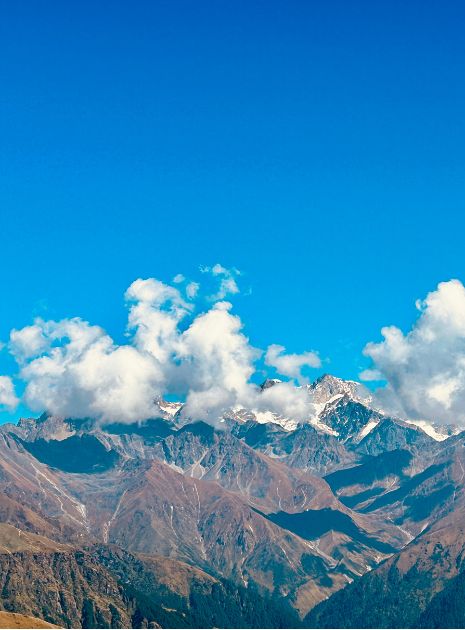Dunda
Dunda (डुंडा) doesn’t announce itself. It rests within the folds of Uttarkashi, beside the Bhagirathi, half of a hill, half of an easy. The sort of area wherein mornings begin with smoke curling from kitchens, and evenings close with the sound of bells ringing across the valley.
Dunda (डुंडा) doesn’t announce itself. It rests within the folds of Uttarkashi, beside the Bhagirathi, half of a hill, half of an easy. The sort of area wherein mornings begin with smoke curling from kitchens, and evenings close with the sound of bells ringing across the valley.
The census notes a population of approximately 1,869 people, spread across 376 households. Men barely outnumber girls, and literacy hovers around 82%, better than the district average. These numbers look tidy on a page. But life here refuses to be only numbers.
Files don’t capture the way a grandmother sits outside, peeling potatoes on a low wooden stool while calling out to children who keep losing their cricket ball in the neighbour’s field. They don’t hold the sound of a crow cawing just as someone hangs wet clothes on the line. They can’t explain how a whole courtyard feels warmer just because a kettle of tea is shared.
That is Dunda the pieces between the data.
The soil here is worked hard. Families develop wheat (गेहूँ), rice (धान), potatoes (आलू), and a handful of pulses. Women can be seen sporting bundles of fodder taller than themselves, men guiding oxen across terraces, and children strolling barefoot alongside the stone paths with sticks in their arms.
It is not an easy land. Monsoons wash it raw, summers dry it, and winters leave it quiet. But people keep working. “मेहनत ही सहारा है,” one farmer shrugs. (Hard work is the only support.)
Animals stay close to families cows and goats for milk, buffalo for strength. Farming here isn’t just survival. It’s a rhythm.
Dawn comes with the rooster and the clang of the handpump. By the time the sun lifts over the ridge, men are already in the fields and women have lit the चूल्हा (chulha). The smell of rotis on a hot तवा fills the courtyards.
Noon slows everything down. The hills heat up, children hide in shade, and only the faint hum of insects carries across the fields.
Evenings are livelier. Tea stalls buzz with talk weather, crops, sometimes politics. The aarti (आरती) bell echoes from the temple, azaan (अज़ान) follows soon after. Elders settle into card games, while children drag their game of gilli-danda a little too long before being called home.
Nights belong to quiet. Some homes glow with lanterns during power cuts, and stars stretch wide across the sky. Families eat simple meals dal, rice, sabzi and talk softly before sleep.
Dunda speaks Hindi in its schools and offices, but its heartbeat is Garhwali (गढ़वाली). You hear it in lullabies, in scoldings, in wedding songs that rise through the night. Children juggle both tongues with ease, slipping into Garhwali at home and Hindi with teachers.
Festivals bring music that belongs to neither school nor office. Drums beat, women sing sharp and clear, and laughter carries long after the songs have ended. Even a cheap mobile phone blaring Bollywood mixes into the same fabric of sound.
The literacy numbers might surprise outsiders. Education has taken root here, even if it asks for sacrifice. Children walk long paths to reach school. Some boys leave for Uttarkashi or Dehradun for higher studies. A few girls, too, if families find the means and courage.
Parents repeat the same line across homes: “पढ़ाई से ही रास्ता खुलेगा.” (Only education will open the road.) For them, books are more than lessons they are hope against the weight of fields and uncertain harvests.
Dunda’s calendar is stitched with rituals. Diwali (दीवाली) brings lamps to every doorway, their glow flickering in opposition to the cold nighttime. Holi (होली) splashes alleys with coloration and chaos, elders guffawing like children. Navratri (नवरात्रि) every so often gathers a small mela (मेला) stalls of goodies, trinkets, balloons.
The details are simple. But what they carry is togetherness. Prayer here isn’t only in temples or mosques. It’s in shared meals, in hands folded after sowing seeds, in songs that pull neighbors into the same rhythm.
Life bends under its own weight. Roads break easily in the rain. Reaching a doctor often means hours of travel. Farming alone cannot keep every family afloat. That is why so many young men leave to Delhi, to Dehradun, to cities where work is steady even if life is harsh.
Their absence leaves marks. Fields sometimes stay fallow. Grandparents take over raising children. Women carry twice the work, managing homes and farms with quiet strength.
Still, people endure. They don’t abandon the soil or the festivals. They bend, adjust, and carry on.
Watch the smoke upward push in thin threads from rooftops. Listen to the thud of a cow’s hooves on stone. Hear the low murmur of the Bhagirathi. Children will run past you, their laughter sharp inside the air, and somewhere an elder will cough as he settles together with his cup of tea.
That’s Dunda. Not just a place on a map, not only numbers in a file. But a living, breathing village steady, unhurried, and strong in its quiet.

Uttarakhand is not simply another country. People here name it Devbhoomi (देवभूमि), the Land of the Gods. And it feels that way. Rivers begin right he......
See Details